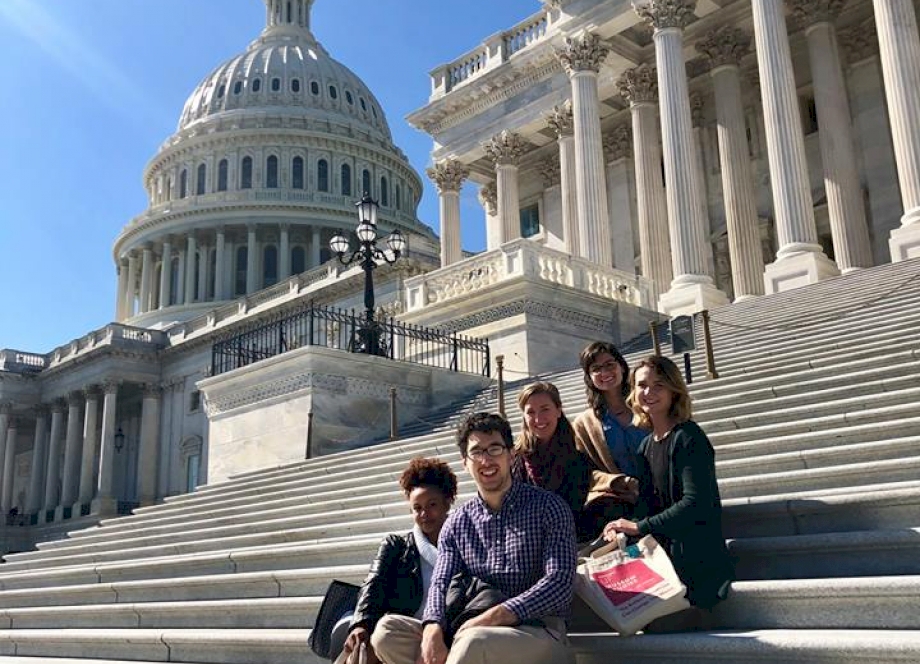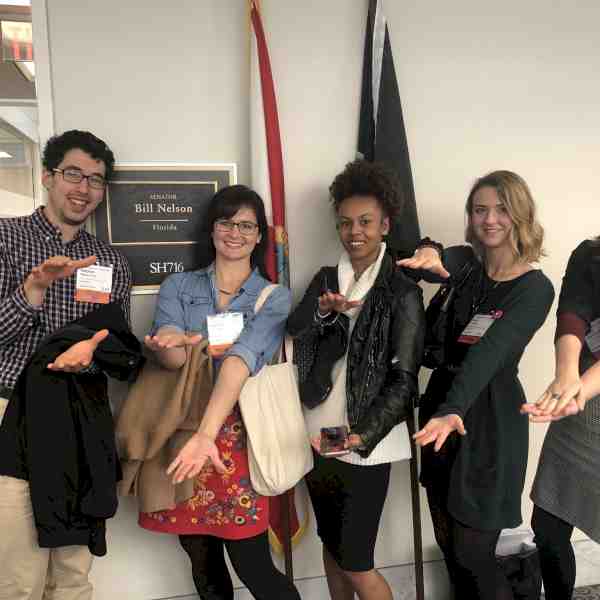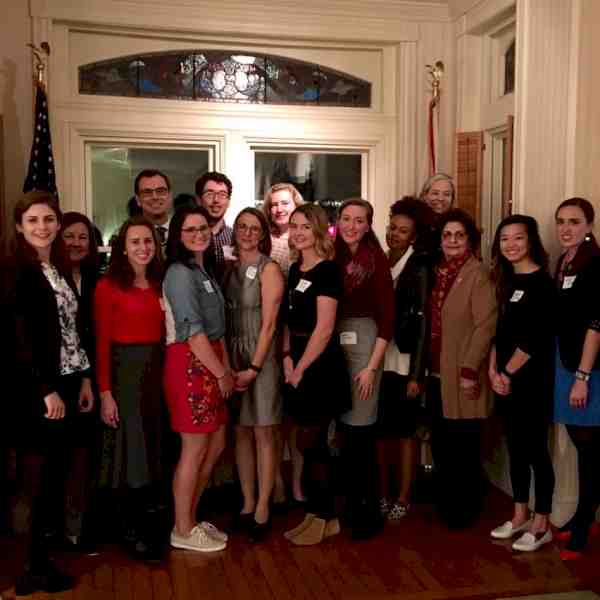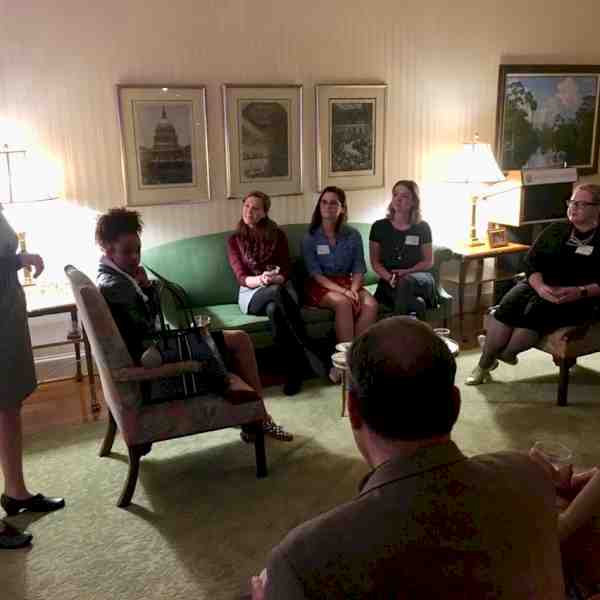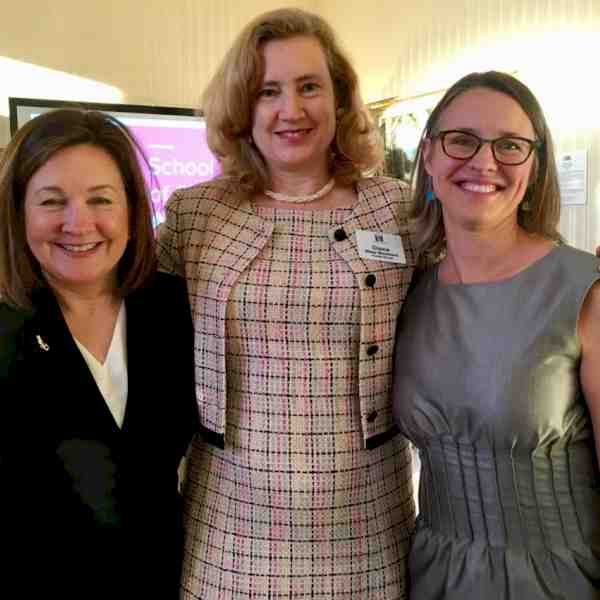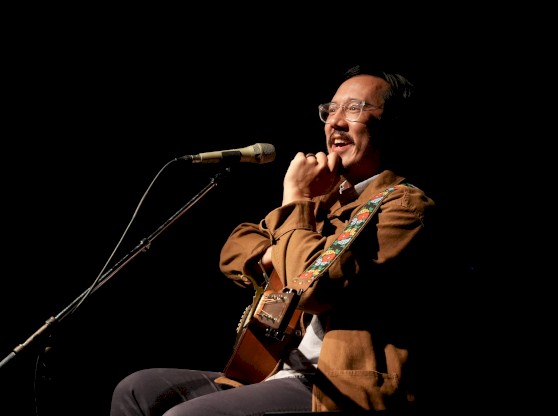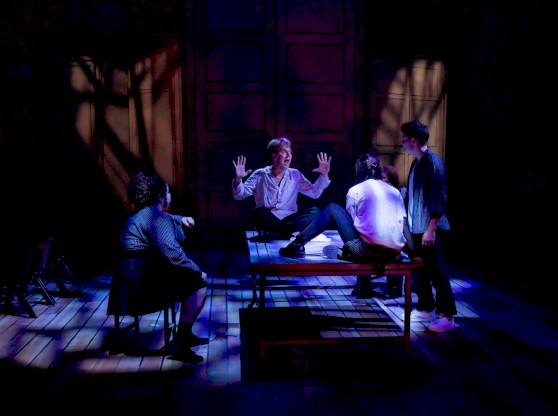UF Museum Studies students saw democracy in action as they traveled to Washington, D.C., for Museum Advocacy Day on Feb. 27.
Museum Advocacy Day is an initiative led by the American Alliance of Museums (AAM) to gather museum professionals from all 50 states to visit their legislators to advocate for the support and funding of museums.
On Feb. 26, Museum Studies students attended AAM’s training day, where they prepared for Museum Advocacy Day. The sessions educated attendees on the legislative agenda of Museum Advocacy Day and provided tools and tactics for meetings along with practice scenarios.
“My biggest takeaway from the training day was that it’s important to present relevant data and back it with personal stories to make an impact upon decision-makers in Congress,” said Stephen Drury, a first-year Museum Studies master’s student. “The training was useful for me because it helped eliminate uncertainty and provided a nice boost of confidence.”
The students were paired with professionals from the Florida Museum of Natural History, the Jacksonville Zoo and Aquarium, and the Cummer Museum for their legislative visits. At the end of the training day, the group prepared what they would say during meetings the next day.
“I felt excited going into Museum Advocacy Day,” Drury said. “To be able to partake in such a meaningful experience and advocate for something that has such a positive and important impact upon our communities and museums was truly amazing.”
On Museum Advocacy Day, the students visited the offices of Senators Marco Rubio and Bill Nelson as well as the office of Representative Ted Yoho.
“I think helping students understand the policy element is very important,” said Briley Rasmussen, director of the Museum Studies graduate program. “By instilling students with these basic advocacy skills, they can go forward to talking to their state governments, their local governments, to board members and to community constituents. I think it reflects really well upon our students that they’re taking this initiative early in their career to be there and to learn about how to be strong advocates for museums.”
To celebrate the end of Museum Advocacy Day, students attended a reception at the Florida House in the capital. Florida is the only state with an embassy in Washington, D.C.
Rhea Chiles, wife of former Florida State Representative, United States Senator and Governor of Florida Lawton Chiles, founded the Florida House because she wanted there to be a comfortable meeting place for all Floridians in Washington, D.C. The house offers a spectacular view of the United States Capitol, and any guests who stop by the house can enjoy a cold glass of Florida orange juice.
At the reception, students met with supporters, alumni and university staff who live and work in Washington, D.C., and told them about their experience at Museum Advocacy Day.
Sarah Mathias, director of federal relations for the University of Florida, was glad to see students travel to the capital to advocate on behalf of museums and the university.
“It’s important that our member of congress hear from our university and our students in particular to see how important their decisions are to our university,” Mathias said. “Our best spokespersons are always our students.”
For the rest of the week, students attended meetings at the National Portrait Gallery, the National Museum of American History and the Holocaust Memorial Museum before leaving for Virginia.
“One of the things we came away with after a few visits was that museum careers can take many shapes and many paths,” Rasmussen said. “Not everyone’s career is going to be the same.”
While in Virginia, students attended meetings with professionals at Monticello, Montpelier and Mount Vernon.
“We went to see how these three historic sites were addressing and interpreting those sites as plantations and as places where enslaved people lived and worked,” Rasmussen said. “We also looked at how they are addressing the legacy of slavery while also negotiating that with the legends of these Founding Fathers.”
The group is now working on co-authoring a paper about how the three sites address these issues in different ways.
In late March, AAM updated Museum Advocacy Day participants with good news about the 2018 Fiscal Year Omnibus spending bill. Programs that were in threat of elimination, like the Institute of Museum and Library Services (IMLS) Office of Museum Services, were set to receive increases with the new spending bill.
A table describing the Fiscal Year 2018 omnibus spending bill as it impacts cultural institutions can be seen here. Also in this document, Yoho is listed as one of the Fiscal Year 2019 House Office of Museum Services letter signers.
Kathleen Price, a former professor of art law at the University of Florida, supports opportunities for Museum Studies students to go on trips such as this one to the nation’s capital.
“With government support for the arts in decline, it’s more important than ever to volunteer, time, talent and treasure in support of the arts,” Price said.
Any person can contribute to the Kathleen Price Museum Studies Award in order to support the continuation of these opportunities for Museum Studies students. Interested donors can also give to the Museum Studies Alumni Endowment fund.
Rasmussen aims to continue providing experiential opportunities for her students, so they can continue to develop their skill sets and broaden their perspectives by meeting museum professions in different cities. These practical experiences are used to compliment students’ classroom learning.
“I felt that Museum Advocacy Day was really tied to the mission of our program at UF,” Rasmussen said. “My hope is that this can become a regular, annual part of the program so that the students can participate in Museum Advocacy Day to gain advocacy tools and to position our program as one that has students that are really engaged in advocacy and the future of museums.”
